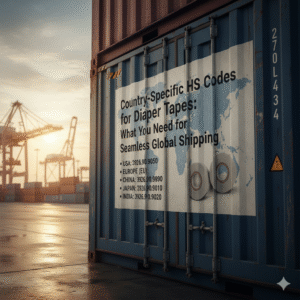Introduction
Non-woven bags have become increasingly popular as an alternative to traditional plastic bags. They are often touted as being more environmentally friendly and durable, but is this really the case? In this blog post, we will take a closer look at the pros and cons of non-woven bags to help you make an informed decision about whether or not they are right for you.
What are Non-Woven Bags?
Non-woven bags are made from a material called polypropylene, which is a type of plastic. However, unlike traditional plastic bags, non-woven bags are not made from a single sheet of plastic. Instead, they are made from a web of fibers that are bonded together. This gives non-woven bags a unique set of properties that make them different from traditional plastic bags.
How are Non-Woven Bags Different from Traditional Plastic Bags?
Non-woven bags are different from traditional plastic bags in a number of ways. First, they are much more durable. Non-woven bags can be reused multiple times without tearing or breaking, while traditional plastic bags are often only used once. Second, non-woven bags are more breathable than traditional plastic bags. This allows them to hold items that need to breathe, such as fruits and vegetables. Third, non-woven bags are more resistant to water than traditional plastic bags. This makes them a good choice for carrying items that may get wet, such as umbrellas or raincoats.
Are Non-Woven Bags Environmentally Friendly?
The environmental impact of non-woven bags is a complex issue. On the one hand, non-woven bags are made from plastic, which is a non-renewable resource. On the other hand, non-woven bags are more durable and reusable than traditional plastic bags, which means that they can help to reduce the amount of plastic waste that ends up in landfills and oceans.
Ultimately, the environmental impact of non-woven bags depends on how they are used and disposed of. If non-woven bags are reused multiple times and then recycled at the end of their lifespan, they can have a relatively low environmental impact. However, if non-woven bags are only used once and then thrown away, they can have a significant environmental impact.
Are Non-Woven Bags Biodegradable?
Non-woven bags are not biodegradable. This means that they will not break down naturally in the environment. However, non-woven bags can be recycled, which helps to reduce their environmental impact.
Do Non-Woven Bags Contribute to Plastic Pollution?
Non-woven bags can contribute to plastic pollution if they are not disposed of properly. If non-woven bags are thrown away in landfills, they can take hundreds of years to decompose. They can also break down into microplastics, which can pollute the environment and harm wildlife.
Can Non-Woven Bags be Recycled?
Non-woven bags can be recycled, but the recycling process is more complex than recycling traditional plastic bags. Non-woven bags must be separated from other types of plastic before they can be recycled. This can be difficult to do, as non-woven bags are often made from a variety of different materials.
Contact Us
If you have any questions about non-woven bags, please do not hesitate to contact us. We would be happy to answer any questions you may have.
Email: sale@favouritehub.com
WhatsApp: 95288811566
Conclusion
Non-woven bags have a number of advantages over traditional plastic bags, including durability, breathability, water resistance, and versatility. However, non-woven bags are not biodegradable and can contribute to plastic pollution if they are not disposed of properly. Ultimately, the environmental impact of non-woven bags depends on how they are used and disposed of.
If you are looking for a durable, reusable, and environmentally friendly alternative to traditional plastic bags, non-woven bags are a good option. However, it is important to remember to reuse and recycle non-woven bags to minimize their environmental impact.
FAQs
What are non-woven bags?
Non-woven bags are made from a web of fibers that are bonded together. They are different from traditional plastic bags, which are made from a single sheet of plastic.
How are non-woven bags different from traditional plastic bags?
Non-woven bags are more durable, breathable, and water resistant than traditional plastic bags. They are also more versatile and can be used for a variety of purposes.
Are non-woven bags environmentally friendly?
The environmental impact of non-woven bags depends on how they are used and disposed of. If they are reused multiple times and then recycled at the end of their lifespan, they can have a relatively low environmental impact. However, if they are only used once and then thrown away, they can have a significant environmental impact.
What are the benefits of using non-woven bags?
The benefits of using non-woven bags include durability, breathability, water resistance, lightweight, and versatility.
Are non-woven bags biodegradable?
Non-woven bags are not biodegradable.
Do non-woven bags contribute to plastic pollution?
Non-woven bags can contribute to plastic pollution if they are not disposed of properly.
Can non-woven bags be recycled?
Non-woven bags can be recycled, but the recycling process is more complex than recycling traditional plastic bags.






































We Do Business On Trust.Our Nonwoven fabric Business is Built on trust. Trust starts with Transparency.
Mr.Ramniwas Garg Founder Of Favourite Group